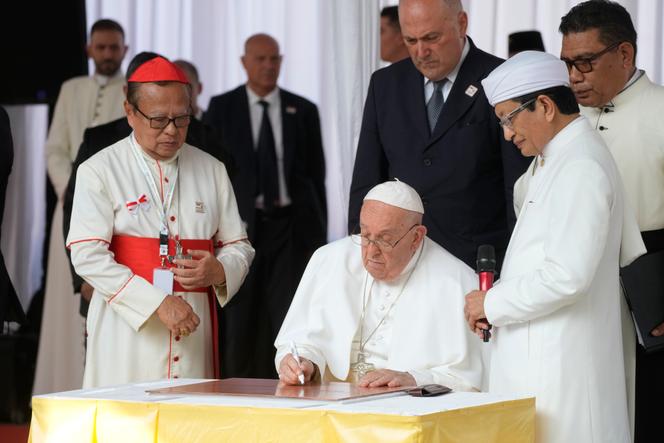


Why was the pope, who is 87 and in poor health, so keen to make this 12-day trip through four Southeast Asian countries? According to the anthropologist and Catholic theologian Michel Chambon, the stakes are both religious and political. Chambon is an expert in Catholicism in Asia, which he studies at the National University of Singapore − the city-state that the pontiff is due to visit from September 11 to 13. With this visit, the pope is seeking to send a message both to the Church and to the world's major powers, starting with China.
The situation has radically different aspects from one country to another, but we can nevertheless identify three major challenges. The first objective, in my opinion, is to reaffirm the union of all Catholics throughout the world, by displaying a communion between the pope, the universal Church and Asian Catholics: This is a way of responding to the discordant voices emanating from Francis' opponents, particularly in the West.
The second purpose of this trip, in my view, is to encourage local Catholics to roll up their sleeves on a number of issues, be it interfaith dialogue, climate change or social justice. In Singapore, for example, the Catholic Church enjoys a number of advantages: It has good ties with the government, real financial affluence, very devout and practicing followers (around 4.5% of the population) and so on. In short, it's a situation that doesn't encourage anyone to step out of their comfort zone to make their voice heard on issues dear to the Vatican, such as the abolition of the death penalty or migrants.
Another example: In East Timor, Catholics represent 97% of the population. The pope therefore has every right to expect the local Church, which enjoys prestige and socioeconomic leverage, to invest more in sustainable development and social justice. Faced with the economic difficulties of this developing country, more and more young people are doubting the Church.
Finally, the third major theme is obviously geopolitics. As has been said many times since the beginning of the trip, it's about sending a message to the world's major powers on such issues like inter-religious matters, the rejection of war and the environmental fight. But the Vatican also has an interest of its own, which straddles theology and geostrategy: that of demonstrating the universal sovereignty that the papacy claims. China is following this trip very closely, and is keeping a close eye on how Francis illustrates this universal sovereignty in concrete terms.
You have 74.44% of this article left to read. The rest is for subscribers only.
